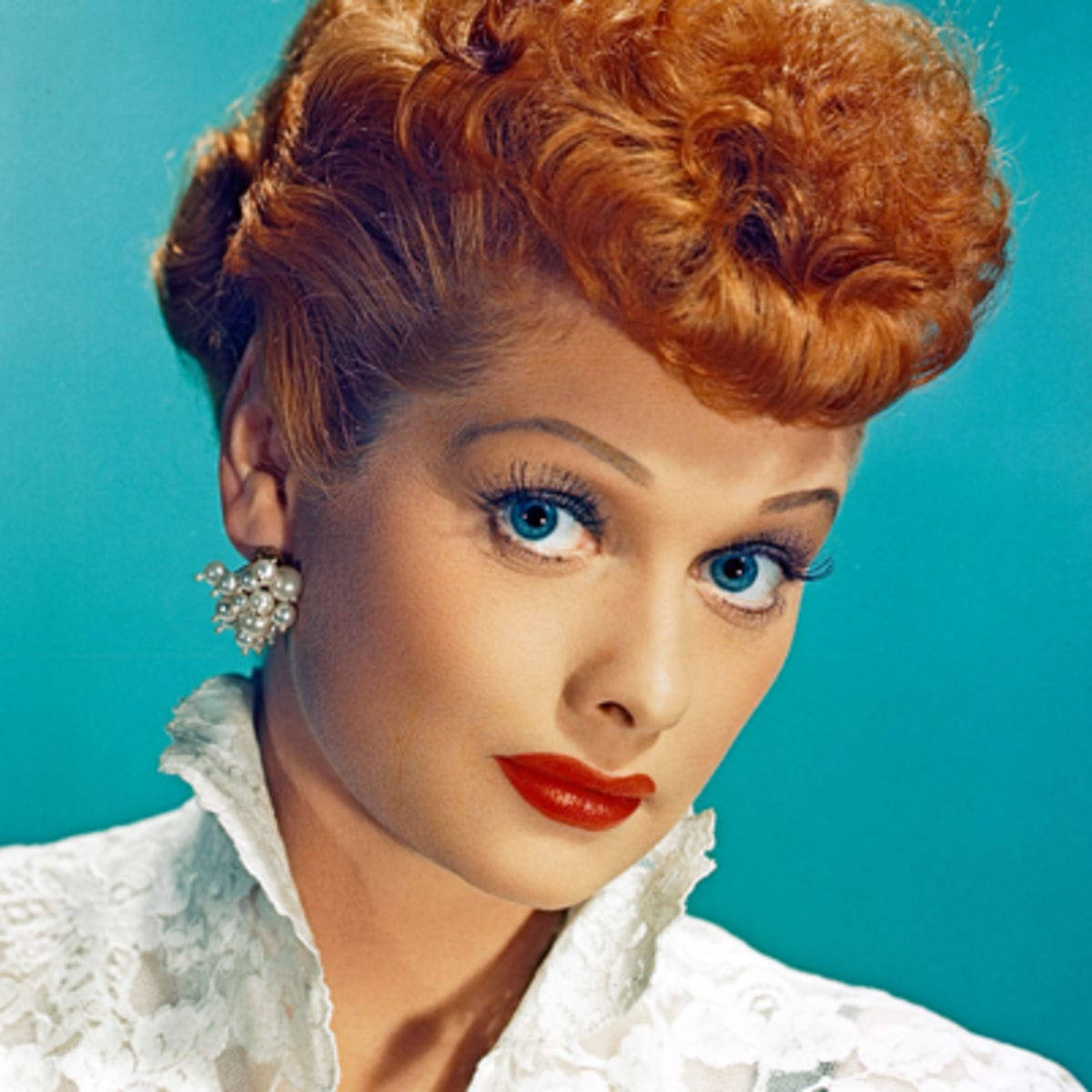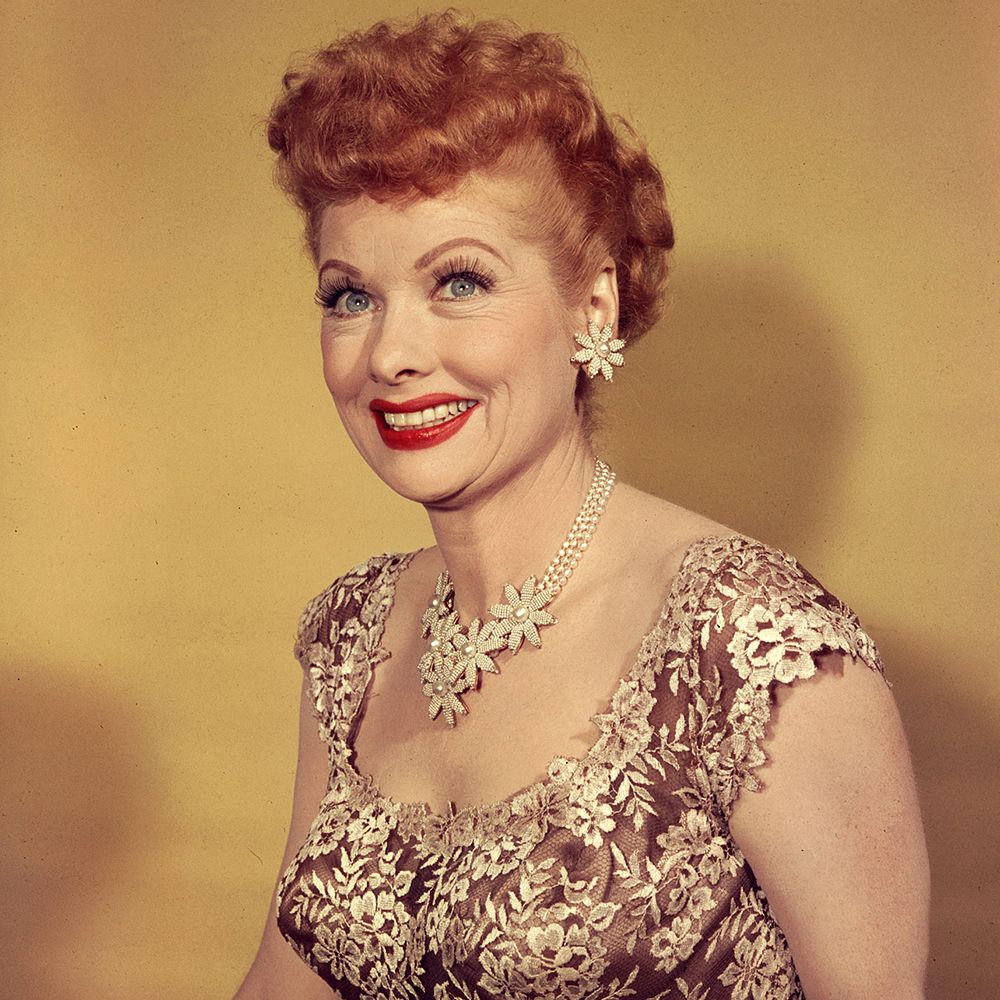Lucille Ball: The Unforgettable Queen Of Comedy And TV
Table of Contents
- Lucille Ball: Biography - The Early Years and Hardships
- Personal Data: Lucille Ball
- The Road to Stardom: Early Roles and Perseverance
- "I Love Lucy": A Revolution in Television
- Beyond Lucy: Desilu Productions and Breaking Barriers
- Personal Life: Motherhood, Marriage, and Divorce
- Health Challenges and Later Years
- Lucille Ball's Enduring Legacy
- Remembering a Legend: Her Final Years
Lucille Ball: Biography - The Early Years and Hardships
Born Lucille Désirée Ball on August 6, 1911, in Jamestown, New York, the future star's early life was far from the glamorous world she would later inhabit. She was the eldest of two children, with a younger brother named Fred. Her childhood was marked by tragedy and hardship, particularly following the death of her father, Henry Durrell Ball, when she was just three years old. This devastating loss meant that her mother, Desiree, had to work several jobs to support the family. As a result, Lucille and her younger brother were often raised by other family members, primarily her maternal grandparents. Her father's profession as a telephone lineman meant the family moved frequently, from New York to Montana and then to New Jersey, as explained by Michael Karol, author of "Lucy A to Z." This transient upbringing, coupled with the early loss of her father, undoubtedly shaped the resilient and determined woman Lucille Ball would become. Despite these challenges, she found an early passion for performance, actively participating in the drama club during high school. However, formal education wasn't her chosen path; she dropped out and made the bold move to Manhattan to study acting, determined to forge her own way in the demanding world of entertainment. This foundational period, though difficult, laid the groundwork for her extraordinary career, instilling in her the grit and perseverance that would define her journey.Personal Data: Lucille Ball
| Category | Details yet the most striking image of her is undoubtedly the one of her with Desi Arnaz and their two children in 1953, a moment captured by Getty Images. This image, far from the slapstick chaos of "I Love Lucy," reveals a tender side: Lucy, thrilled to be a mother at last, asking to see her newborn the moment her anesthesia wore off, as described by Purdum. This profound personal joy was a stark contrast to the public image of a woman who had previously suffered multiple miscarriages, making her eventual motherhood all the more poignant.The Road to Stardom: Early Roles and Perseverance
Lucille Ball's journey to becoming a household name was a long and arduous one, paved with countless small roles and relentless perseverance. After her move to New York, her initial attempts at breaking into acting were met with skepticism. She briefly worked as a model for designer Hattie Carnegie to support herself, but her heart remained set on the stage. She eventually landed chorus girl roles on Broadway, slowly gaining experience and refining her craft. In the early 1930s, she made her way to Hollywood, where she began to pick up uncredited and minor roles in films. She appeared in dozens of movies, often as a "B-movie queen," earning the nickname "Queen of the B's." These early roles, though not always prestigious, provided invaluable training. She learned about camera angles, comedic timing, and how to make the most of every line, no matter how small. Her filmography from this period includes appearances in films like "Roman Scandals" (1933) with Eddie Cantor, "Stage Door" (1937) alongside Katharine Hepburn and Ginger Rogers, and "Dance, Girl, Dance" (1940). While she never achieved top-tier movie stardom, these years were crucial for honing the skills that would later make her a television icon. She was a veteran of television, film, radio, and stage long before "I Love Lucy" made her a global phenomenon, demonstrating her commitment to the craft across all mediums."I Love Lucy": A Revolution in Television
The creation and success of "I Love Lucy" stands as the undisputed pinnacle of Lucille Ball's career and a landmark moment in television history. She was best known for creating and starring in this show, which remains one of the most influential sitcoms of the 20th century. The series, which premiered in 1951, was a groundbreaking achievement, not only for its innovative comedic style but also for its pioneering production techniques. Lucille Ball, alongside her then-husband Desi Arnaz, insisted on filming the show with three cameras in front of a live studio audience, a method that became the industry standard. This approach allowed for the vibrant, immediate energy of live performance to be captured, setting "I Love Lucy" apart from other early television programs.The Dynamic Duo: Lucille Ball and Desi Arnaz
The undeniable chemistry between Lucille Ball and Desi Arnaz, both on and off screen, was the heart of "I Love Lucy." Their real-life marriage provided the foundation for the fictional Ricardo couple, adding a layer of authenticity and relatability to their zany antics. Desi Arnaz, a Cuban-American bandleader, brought a unique energy to the show, and his insistence on casting himself alongside his wife was initially met with resistance from CBS executives. However, Ball and Arnaz stood firm, understanding that their real-life dynamic was integral to the show's potential success. This partnership was not just romantic; it was a powerful creative and business alliance that revolutionized the entertainment industry.Creative Control and Business Acumen
Lucille Ball's influence extended far beyond her on-screen performance. She, along with Desi Arnaz, exerted an unprecedented level of creative control over her shows. Together, they formed Desilu Productions, a pioneering television studio that produced "I Love Lucy" and many other successful series. This move was revolutionary, as it allowed them to retain ownership of their content, a practice unheard of at the time when studios typically owned everything. Their foresight in negotiating for rerun rights proved to be a financial windfall, setting a precedent for future television productions. Lucille Ball was not just an entertainer; she was a shrewd businesswoman, continuously breaking barriers for women in the entertainment business and demonstrating a keen understanding of the industry's evolving landscape.Beyond Lucy: Desilu Productions and Breaking Barriers
After the monumental success of "I Love Lucy," Lucille Ball and Desi Arnaz continued to build their empire with Desilu Productions. This studio became a powerhouse in Hollywood, responsible for producing iconic shows like "Star Trek" and "Mission: Impossible," among others. Desilu's innovative production techniques, including the multi-camera setup and filming on 35mm film (which allowed for high-quality reruns), transformed the television landscape. Following her divorce from Desi Arnaz, Lucille Ball took sole control of Desilu Productions in 1962, becoming the first woman to head a major Hollywood studio. This was an extraordinary feat in an era when women were rarely seen in such powerful executive roles. As a studio executive, she oversaw a vast operation, making critical business decisions and shaping the careers of countless others. Her leadership at Desilu solidified her legacy not just as a performer, but as a visionary entrepreneur who shattered gender barriers and proved that a woman could thrive and lead at the highest levels of the entertainment industry. Her trailblazing work behind the scenes set new standards and opened doors for future generations of women in media.Personal Life: Motherhood, Marriage, and Divorce
While her professional life was marked by immense success, Lucille Ball's personal journey was a complex tapestry of joy, challenges, and heartbreak. Her marriage to Desi Arnaz, which began in 1940, was a passionate and tumultuous one. Their dynamic fueled the on-screen magic of "I Love Lucy," but off-screen, their relationship faced significant pressures from the industry and public life. Despite the marital strains, Lucille Ball cherished her role as a mother. After several miscarriages, she finally welcomed her first child, daughter Lucie Désirée Arnaz, in 1951, followed by son Desiderio Alberto Arnaz IV (Desi Arnaz Jr.) in 1953. Getty Images captured a tender moment in 1953 with Lucille Ball and Desi Arnaz with their two children, a testament to their family life. Purdum noted that Lucy was "thrilled to be a mother at last" and asked to see her newborn the moment her anesthesia wore off, highlighting her deep maternal joy. However, the immense pressure of their careers, coupled with Desi's struggles with alcohol and infidelity, eventually took their toll. After a successful ten-year run of "I Love Lucy," the personal and professional pressures became too much. Arnaz and Ball canceled the show in its original format and were divorced in 1960. Despite the end of their marriage, they maintained a respectful and often affectionate relationship, particularly concerning their children and their shared business ventures. Lucille Ball later married comedian Gary Morton in 1961, a union that brought her much personal happiness and stability in her later years.Health Challenges and Later Years
Even a vibrant personality like Lucille Ball was not immune to the challenges of aging and health issues. Throughout her life, she faced various health problems, though she often kept them private. In her later years, she continued to work, appearing in various television specials and films, and even attempting another sitcom, "Life with Lucy," in the mid-1980s. While this later series didn't achieve the same iconic status as "I Love Lucy," it demonstrated her enduring passion for performance and her desire to connect with audiences. As she aged, her health began to decline. Despite her remarkable resilience, the physical demands of her comedic performances and the relentless pace of her career undoubtedly took a toll. She was known for her dedication to her craft, often pushing herself to deliver the perfect comedic moment, which sometimes involved elaborate stunts and physical comedy. These later years saw her transitioning from the intense daily grind of a studio executive and sitcom star to a more relaxed pace, though she remained a beloved public figure, frequently honored for her contributions to entertainment.Lucille Ball's Enduring Legacy
The legacy of Lucille Ball is immeasurable. Her impact on entertainment is undeniable, stretching far beyond the confines of "I Love Lucy." Widely considered one of the greatest comedians of all time, Lucille Ball created an early television character that still enjoys great popularity around the world after more than fifty years. From her iconic role in "I Love Lucy" to her trailblazing work behind the scenes, she broke barriers and set new standards for the industry.A Trailblazer for Women in Entertainment
Lucille Ball was an American actress and a true pioneer in comedy. As an entertainer and businesswoman, Ball continuously broke barriers for women in the entertainment business. Her decision to take over Desilu Productions after her divorce made her the first woman to run a major Hollywood studio, a monumental achievement that paved the way for future female executives. She demonstrated that women could be not only brilliant performers but also astute business leaders, capable of managing vast enterprises and making strategic decisions that shaped the industry. Her courage and foresight in a male-dominated field continue to inspire women in media and beyond.The Timeless Appeal of Her Comedy
Even decades after its original airing, "I Love Lucy" remains a cultural touchstone. Its humor transcends generations and cultural boundaries, a testament to Lucille Ball's universal appeal. Her physical comedy, her expressive face, and her ability to find humor in everyday situations created a character that was relatable, flawed, and utterly lovable. The show's influence can be seen in countless sitcoms that followed, many of which adopted the multi-camera format and comedic pacing that "I Love Lucy" perfected. Her comedic DNA is still evident in modern television, proving that true genius is timeless. Resources like "The Lucille Ball Encyclopedia," "The Lucy Book of Lists," and "The Lucille Ball Quiz Book" attest to the ongoing fascination with her life and work.Remembering a Legend: Her Final Years
Lucille Ball's life came to an unexpected end at age 77 on April 26, 1989, in Los Angeles, California. Her death sent shockwaves through Hollywood and among her legions of fans worldwide. Just weeks before her passing, she had undergone emergency heart surgery. Despite initial reports of a successful recovery, she suffered a ruptured aortic aneurysm, leading to her sudden demise. Her passing marked the end of an era, but her Hollywood legacy lives on vibrantly. Tributes poured in from across the globe, acknowledging her unparalleled contributions to comedy, television, and the empowerment of women in entertainment. Lucille Ball's journey from a childhood marked by hardship in Jamestown, New York, to becoming one of the most beloved and influential figures in entertainment history is a remarkable story of talent, tenacity, and pioneering spirit. She left behind a body of work that continues to bring joy and laughter to millions, ensuring that the unforgettable Queen of Comedy will forever hold a special place in our hearts. Lucille Ball's life story, as detailed by sources like IMDb, offers an extensive overview of a legendary actress, producer, and comedian who truly changed the game. Her impact is a reminder that creativity, coupled with business acumen and an unwavering spirit, can break any barrier. If you've enjoyed learning about the extraordinary life of Lucille Ball, we encourage you to revisit her timeless work or explore more about her groundbreaking achievements. Share your favorite Lucille Ball moment in the comments below, or discover other inspiring figures who shaped the world of entertainment!- Demi Moore And Bruce Willis
- Kristen Wiig
- Elina Svitolina
- Eric Roberts Movies And Tv Shows
- North Carolina Shooting

Lucille Ball, 1940s : ILoveLucy

Lucille Ball Wallpaper

Lucille Ball